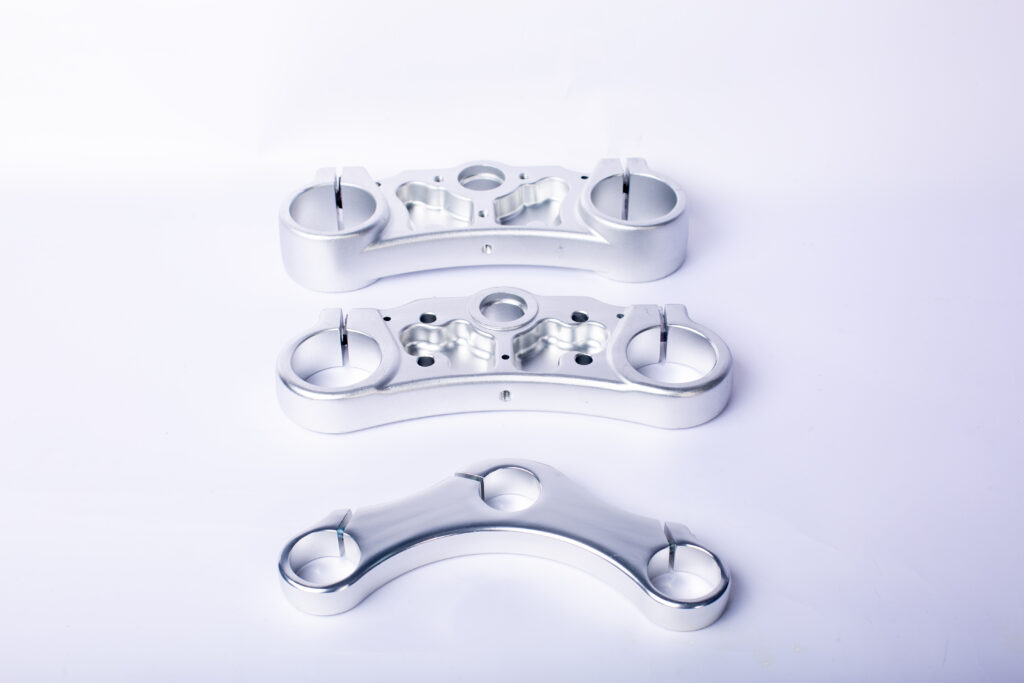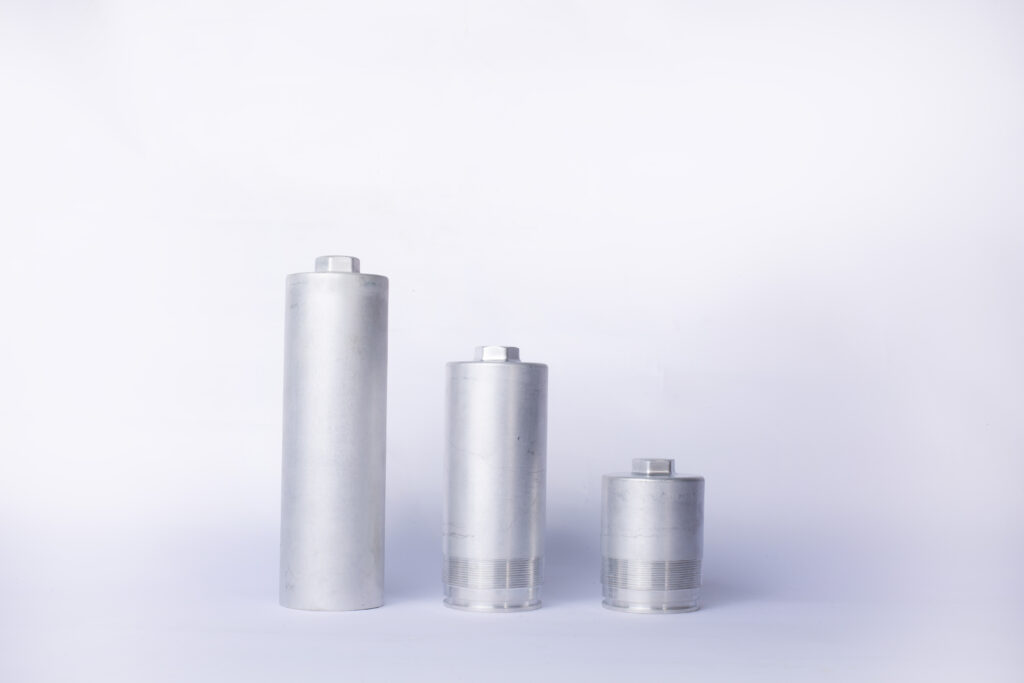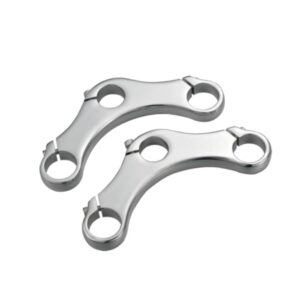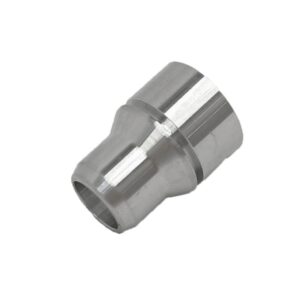In the world of manufacturing and engineering, precision and durability are key. Industries such as aerospace, automotive, medical devices, and electronics rely on the development of high-performance systems that demand superior materials and advanced processing techniques. One such material that has gained significant traction is aluminum. As one of the most versatile metals available, aluminum is widely used in the production of machined parts that play crucial roles in high-performance systems.
At MINGYU Tech, we specialize in providing high-quality aluminum machining services, delivering parts that meet the stringent requirements of various industries. This article will explore the advantages of aluminum for machining, the key processes involved, and how aluminum parts contribute to the functionality and reliability of high-performance systems.
Why Aluminum?
Aluminum is a material that has long been valued for its combination of light weight, strength, and excellent machinability. These characteristics make it an ideal choice for industries that demand high performance but also need to keep overall weight to a minimum, such as in aerospace and automotive manufacturing.
1. Lightweight Strength:
Aluminum is a lightweight material that doesn’t compromise on strength. In high-performance systems, such as aircraft or electric vehicles, reducing weight is essential for improving fuel efficiency, speed, and overall performance. Aluminum’s strength-to-weight ratio makes it an ideal choice for components that require robustness without adding unnecessary weight.
2. Corrosion Resistance:
Aluminum naturally forms a thin oxide layer when exposed to air, which protects the material from corrosion. This makes it highly suitable for environments where moisture or chemicals are present, such as marine applications or industrial machinery. Components made from aluminum require less maintenance, thus reducing long-term operating costs.
3. Thermal and Electrical Conductivity:
Aluminum offers excellent thermal and electrical conductivity, which is crucial for many high-performance systems, especially in industries like electronics and energy. The material is commonly used for heat sinks, electrical connectors, and other components that need to effectively transfer heat or electricity.
4. Sustainability:
Aluminum is 100% recyclable without loss of quality. As industries continue to focus on sustainability and reducing their environmental impact, aluminum plays an important role in creating a circular economy. The ease of recycling not only reduces material waste but also lowers the energy required for the production of new parts.

The Aluminum Machining Process
The process of machining aluminum parts involves several steps, each of which requires precision to ensure high-quality results. MINGYU Tech uses state-of-the-art machinery and techniques to fabricate parts that meet the needs of even the most demanding industries.
1. CNC Milling:
CNC (Computer Numerical Control) milling is one of the most common methods used for machining aluminum. This process involves using rotary cutters to remove material from a workpiece, allowing for the creation of complex shapes and tight tolerances. CNC milling is ideal for producing custom parts, including housings, brackets, and components for various high-performance systems.
2. CNC Turning:
CNC turning is another vital machining process used to shape aluminum parts. In this method, the aluminum workpiece is rotated while a cutting tool is applied to remove material. This process is often used for producing round or cylindrical parts such as shafts, gears, and bushings. CNC turning offers high precision and is essential for creating parts with smooth surfaces and tight diameters.
3. Laser Cutting:
For more intricate designs or when ultra-fine precision is required, laser cutting may be employed. Laser cutting uses a focused laser beam to melt or vaporize material, allowing for extremely precise cuts with minimal material waste. This process is particularly useful for producing flat components such as plates, brackets, or custom shapes for advanced systems.
4. Anodizing and Surface Finishing:
While aluminum is naturally corrosion-resistant, many applications require additional surface protection to enhance durability, aesthetics, and wear resistance. Anodizing is a common method used to harden the surface of aluminum and add a layer of protection. The anodized layer also provides an excellent surface for painting or coating, allowing for a variety of finishes to meet the needs of different industries.
Applications in High-Performance Systems
Aluminum machining parts are critical in the manufacturing of high-performance systems across several industries. Here are some notable applications:
1. Aerospace Industry:
In aerospace, weight reduction is crucial for improving fuel efficiency and payload capacity. Aluminum is widely used in aircraft components, such as wing spars, engine mounts, and fuselage frames. Its strength, lightweight properties, and resistance to corrosion make it the ideal choice for these highly demanding applications.
2. Automotive Industry:
The automotive sector benefits from aluminum’s lightweight and high-strength properties. Aluminum is increasingly being used for parts such as engine blocks, transmission cases, and wheels, as well as in electric vehicle batteries and chassis. By reducing the weight of these components, manufacturers are able to improve fuel economy and performance.
3. Medical Devices and Equipment:
In the medical field, precision and hygiene are critical. Aluminum is often used in the production of surgical instruments, medical device housings, and diagnostic equipment due to its excellent machinability, lightweight properties, and biocompatibility. Anodized aluminum is particularly useful for ensuring corrosion resistance and maintaining sterile environments.
4. Electronics and Telecommunication:
In electronics, aluminum is frequently used for heat sinks, electrical housings, and connectors. Its high thermal conductivity allows it to dissipate heat from sensitive components, ensuring the efficient operation of devices like computers, smartphones, and telecommunication equipment.
5. Industrial Machinery:
Aluminum’s ability to withstand harsh environments makes it a preferred material for industrial machinery components, such as gearboxes, conveyors, and hydraulic parts. Its corrosion resistance and ability to maintain structural integrity over time help extend the lifespan of critical machinery.

Why Choose MINGYU Tech for Aluminum Machining Parts?
At MINGYU Tech, we are committed to providing precision aluminum machining services that meet the highest standards of quality and performance. We combine cutting-edge technology, expert craftsmanship, and an unwavering dedication to customer satisfaction. Whether you require small-scale production or large-volume runs, we have the expertise and equipment to deliver aluminum parts that support the efficiency and reliability of your high-performance systems.
Our commitment to excellence ensures that every part we produce is made to exact specifications, providing you with the confidence that your components will perform as expected, every time. With years of experience in the industry and a customer-centric approach, MINGYU Tech is your trusted partner for aluminum machining parts.
Conclusion
Aluminum machining parts are integral to the performance, reliability, and longevity of high-performance systems across various industries. From aerospace to electronics, the lightweight strength, corrosion resistance, and versatility of aluminum make it the material of choice for engineers and manufacturers alike. By utilizing advanced machining techniques and partnering with a trusted manufacturer like MINGYU Tech, industries can ensure that their systems operate at peak efficiency.
If you’re looking for precision-engineered aluminum parts for your high-performance systems, MINGYU Tech is here to help. We are dedicated to providing the highest quality machining services, helping you stay ahead in today’s competitive market.




